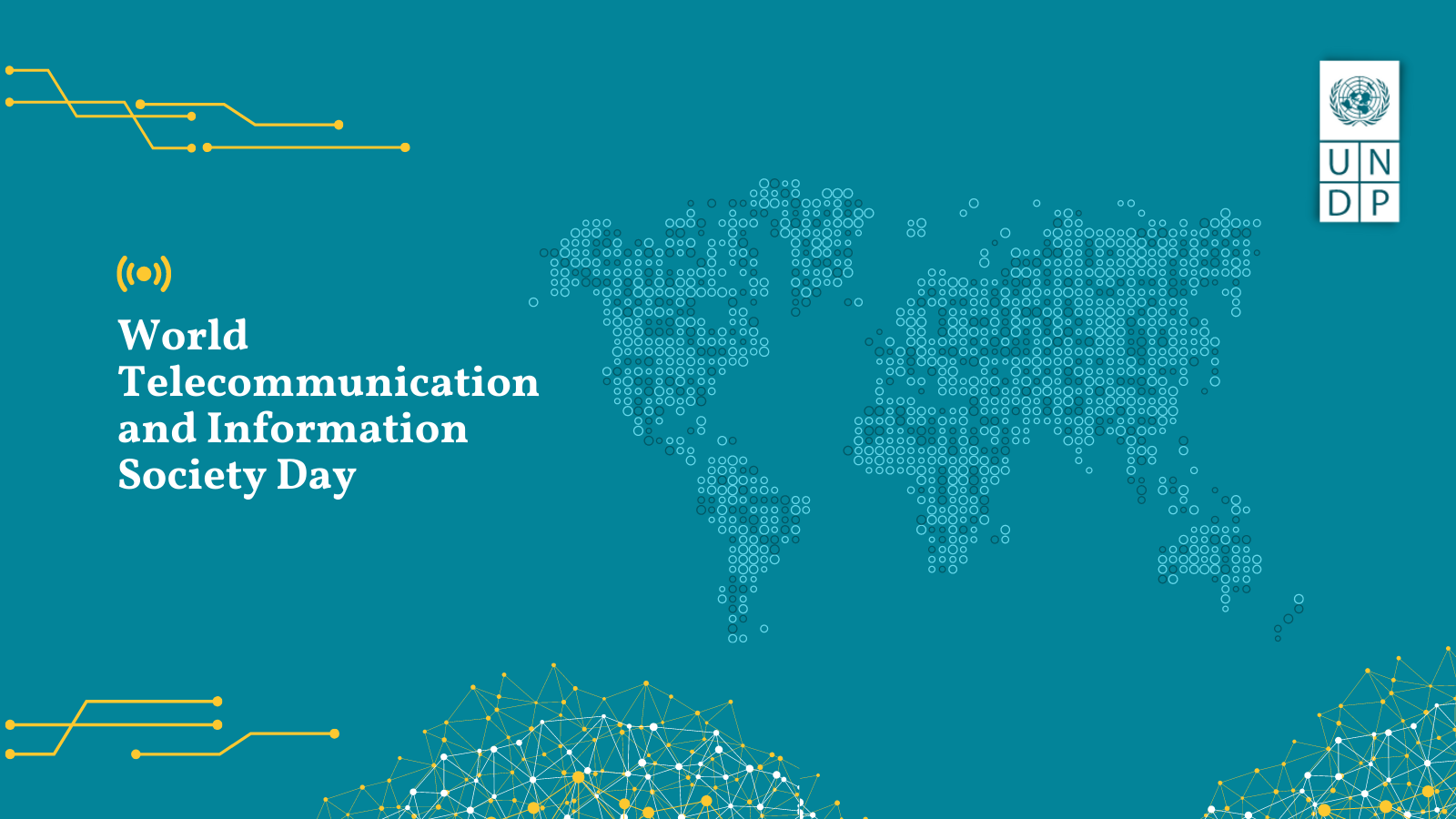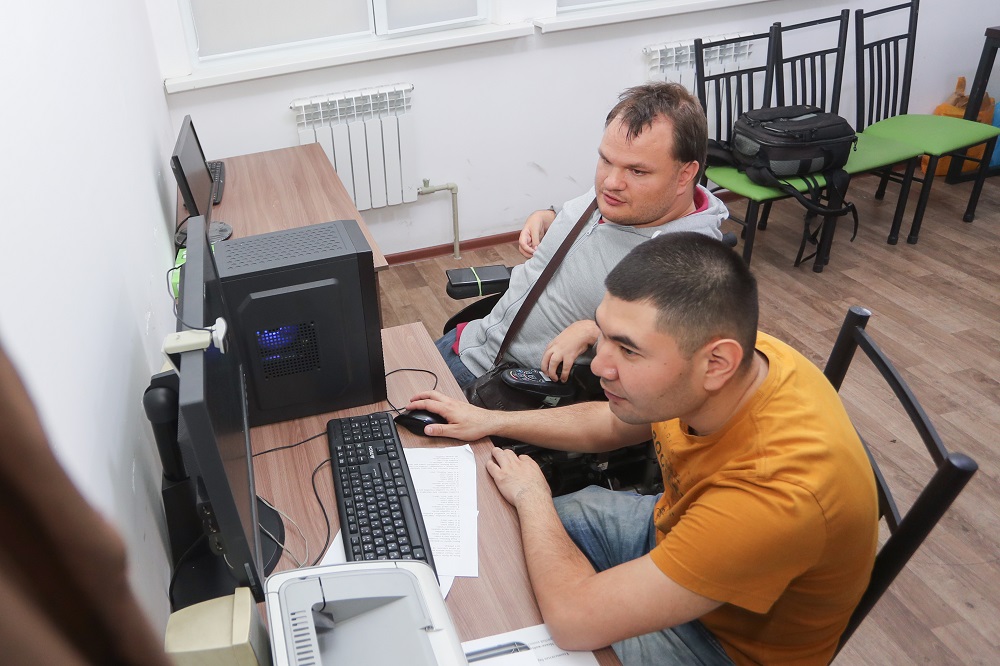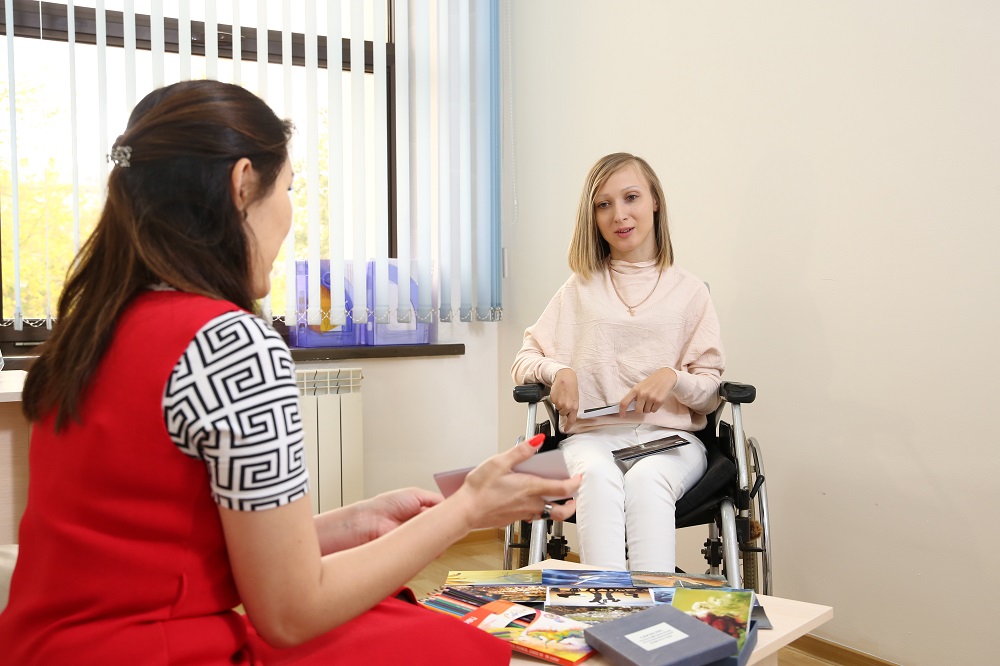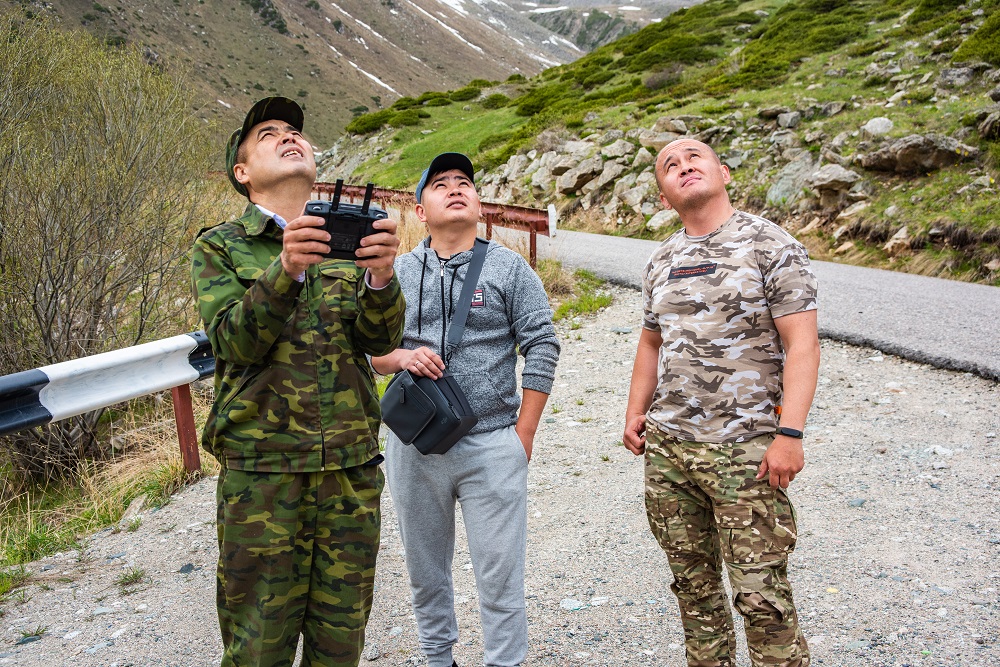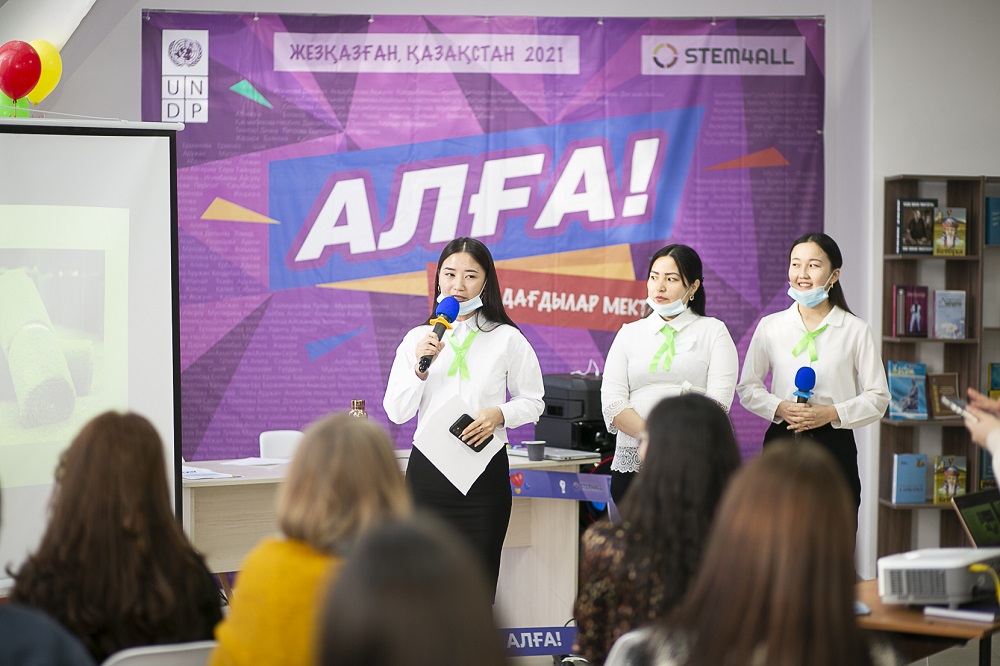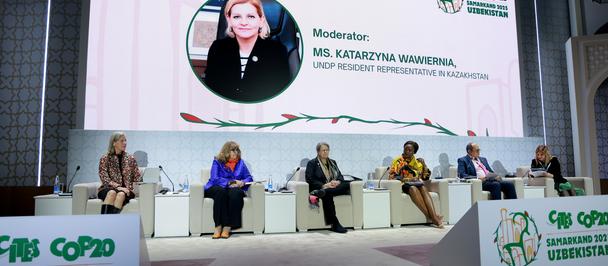May 17 marks the World Telecommunication and Information Society Day (WTISD). In today's age of an ever-evolving array of technologies, it speaks of a revolution, a time of technoculture from an information society to a virtual society. We at UNDP are prepared for this "revolution" by reshaping the way we serve people and the planet in a digital age.
This year, UNDP launched its new Digital Strategy 2022-2025 to pull ahead of the ever-evolving digital reality – to drive forward momentum towards achieving the Sustainable Development Goals.
The Strategy outlines a vision where “digital technology is a fundamental force for change” for people and the planet. In a nutshell, it calls on us to tap into the power of digital technologies for better results and efficiency in both UNDP programming and in its internal business operations, to forge a digital culture in the organization that creates impactful, data-driven decision-making and flexibility.
With the outbreak of the COVID-19 pandemic, digital transformation in the UNDP office has accelerated at a rapid pace. In record time, we put processes in place to enable full remote working. We successfully introduced new collaboration tools that allowed us to not only work digitally, but also save budget and effort and reduce our carbon footprint.
Digitalization, or tech-enabled change, is driving new ways of working and thinking while opening-up opportunities that we could not have imagined. As a key enabler for sustainable development, digitalization helps to reach the most vulnerable by utilizing innovations shaped by technological progress and by creating and nurturing local digital ecosystems.
In Kazakhstan, UNDP harnesses the digital to amplify development outcomes across all portfolios and thematic areas of work. The spectrum is wide-ranging and transformational. From the Digital Portal of Social Services for persons with disabilities and upgrading IT staff to accelerating digital transformation in the public sector, from introducing satellite telemetry for wildlife monitoring to closing the digital gender gap in the monotowns of Kazakhstan. Through all these innovative journeys we are helping the country to build an inclusive and sustainable digital society.
Digitalization for people-oriented governance
Today’s fragile, anxious, nonlinear and unfathomable world dictates that governments need to be more agile and adaptive to changes, taking advantage of new technology to deliver better outcomes, more responsive and effective services to citizens.
Thanks to our flagship platform – the Astana Civil Service Hub – we work to strengthen the capacity of governments from seven countries of Central Asia and the Caucasus to foster innovation in public administration and in digitization of public services – thereby creating citizen confidence.
As part of this initiative, funded by the Government of Korea, we recently presented the results of a first study, thoroughly examining the needs of countries in implementing digital transformation.
In Kazakhstan, we also provided expert and training support to the Digital Transformation Centre, Ministry of Digital Development, Innovations and Aerospace Industry of Kazakhstan – a key entity for revising all the business processes of government bodies. An early initiative during the COVID-19 pandemic in 2020 included training aimed at upgrading digital and communication skills of civil servants in central and local executive institutions.
Designing inclusive digital platforms
To address the needs of the most disadvantaged – women and girls, youth, persons with disabilities, older persons and people living in remote areas – we promote a digital transformation that is intentionally inclusive. We promote a societal and cultural change that leaves no one behind.
In line with national priorities, persons with disabilities are a primary focus. With the Ministry of Labour and Social Protection of the Population of Kazakhstan, we developed a Portal of Social Services – 690,000 persons with disabilities can access special social services online. The Portal is a virtual marketplace, one in great demand during the pandemic, when quarantine measures made most services unavailable.
The pandemic also encouraged the testing and introduction of digital tools to ensure human rights protection at this difficult time. It was part of our fruitful cooperation with the National Preventive Mechanism against Torture and Ill Treatment. UNDP has developed a digital platform for NPM participants allowing on-line recording of monitoring data, i.e. the results of interviewing people in the places of detention and closed institutions.
Harnessing the digital to help flora and fauna thrive
Our lens is also focused on the environment, our narrative is also about the planet: we harness the digital tools and instruments to improve the quality of environmental protection and monitoring.
Today, thanks to our joint effort with the Forestry and Wildlife Committee of the Ministry of Ecology, Geology and Natural Resources of Kazakhstan, funded by the Global Environment Facility (GEF), tech solutions have been successfully introduced in specially protected areas of Kazakhstan. In eight of them we introduced a SMART patrolling system – a spatial monitoring and reporting tool for collecting, analysing and exchanging data on wildlife in vast natural areas, 1.5 million hectares. It also helps combat poaching and ensure the safety of employees and visitors.
Thanks to our experts or team’s efforts and the financial resources of the GEF and UNDP, modern technologies for monitoring wildlife including trap cameras, drones and satellite collars are all helping to obtain reliable data on the state of ecosystems and wildlife. Our partnerships on forest management goes beyond by teaming up with the blockchain company Bitfury that helps reduce the carbon footprint by preserving existing forests and increasing their area.
Last year snow leopards entered the scene – we launched the process of tagging snow leopards using satellite telemetry. Satellite equipment, namely collars, send information about the animal’s movements to specialists who study their migratory patterns to identify threats and to develop proposals to reduce perils. The collars are eco-friendly, safe and trapping takes place by a humane and safe method, one successfully and repeatedly undertaken in other countries.
Bridging digital gender gap
We remain committed to bridging the digital gender gap and using digitization to address gender-based violence and to advance women's economic empowerment.
Our recent “Alga!” bootcamp was aimed at promoting digital inclusion and leadership among women in remote areas of Kazakhstan to improve their employment opportunities in the tech sector. Women role models in ICT and STEM pathways were held up as avatars to raise participants’ awareness of the requisite skills for the 21st century.
Thanks to the marathon of ideas, conducted by the Regional Spotlight Initiative, young people from five countries of Central Asia proposed 58 solutions to combat gender-based violence in the region. An important moment in the quest for gender equity.
Contemplating the wider canvas, UNDP in Kazakhstan is promoting a digital transformation that puts people and the environment at the centre to build a more open, transparent, and accessible society that leaves no one behind. Stay tuned for our new plans to bear fruit this year…
***
The purpose of World Telecommunication and Information Society Day (WTISD) is to help raise awareness of the possibilities that the use of the Internet and other information and communication technologies (ICT) can bring to societies and economies, as well as of ways to bridge the digital divide.

 Locations
Locations